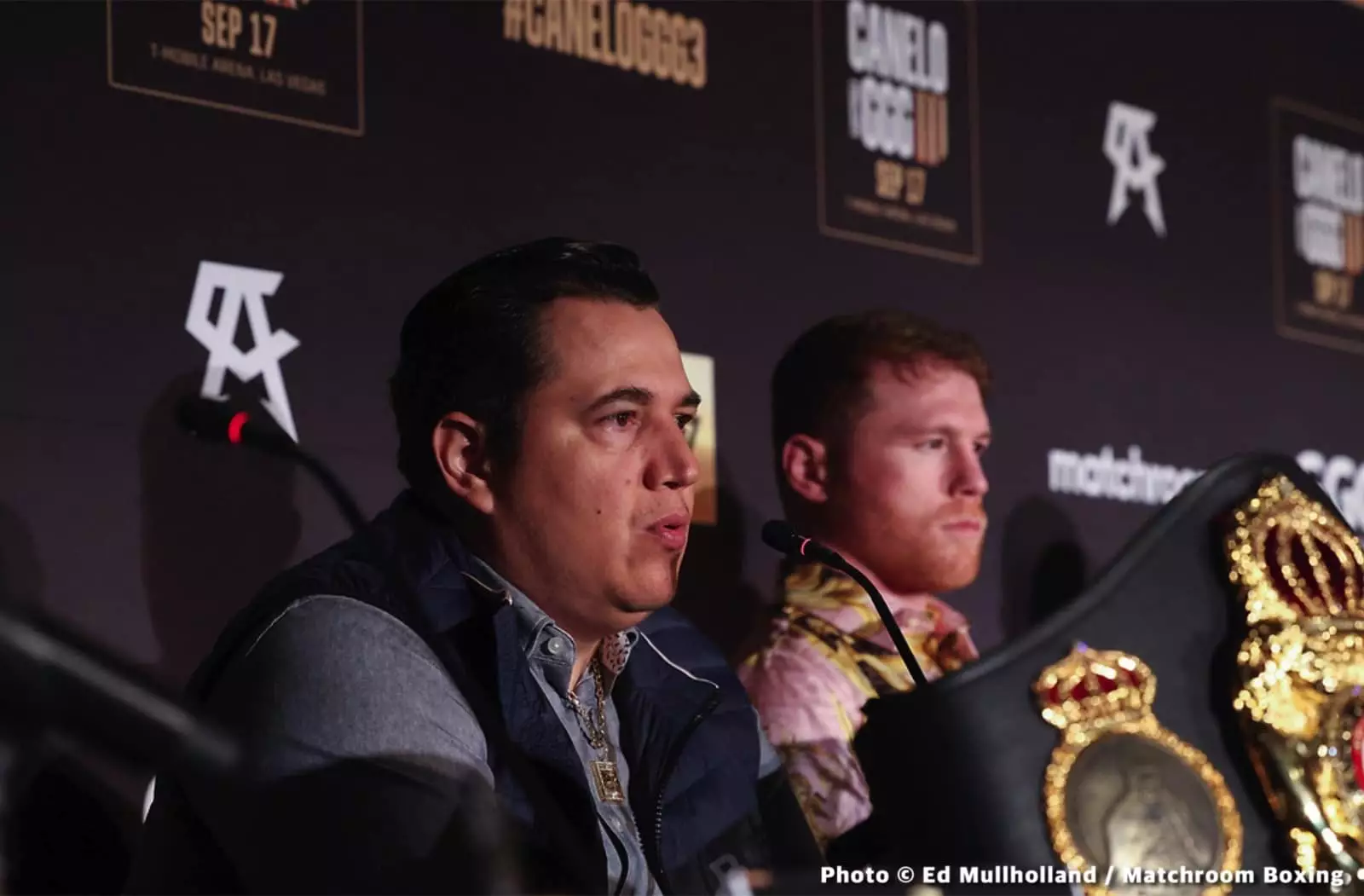In recent weeks, the boxing community has been gripped by a wave of allegations and suspicions surrounding renowned trainer Eddy Reynoso. The fallout from fighters testing positive for banned substances has cast a long shadow over his reputation, prompting an urgent need for transparency and accountability. While Reynoso’s supporters see him as a paragon of integrity, critics are quick to question whether these doping revelations merely scratch the surface of a deeper issue. The trainer’s recent public statement, however heartfelt and unequivocal, raises essential questions about the integrity of the sport and the responsibilities of those who shape champions.
The scrutiny intensified with the failure of fighters like Jaime Munguia and Francisco Rodriguez, which led to a damaging rumor mill that threatened Reynoso’s legacy. As the accusations swirled, it became inevitable for Reynoso to step forward and defend his name. His claim that he did not participate in Rodriguez’s recent fight, nor managed him during that period, appears as a tactical move to dissociate himself from the doping controversy. Yet, it also brings to light a fundamental challenge in boxing ethics: the blurred lines of responsibility. Is it sufficient for a trainer to deny involvement when their stable is marred by doping scandals, or must a broader responsibility be assumed to uphold cleaner sport practices at every level?
This situation underscores a broader failing within professional boxing—an environment where the lines between coaching, management, and personal responsibility often become indistinct. Reynoso’s insistence that he had no part in Rodriguez’s fight and only met him recently is credible but also leaves room for skepticism. How deeply involved are trainers in the day-to-day nutritional and supplement decisions of their fighters? The sport’s increasing reliance on performance-enhancing aids complicates this issue further, making transparency not just a virtue but an obligation.
Fighting for Transparency: The Role of Trainers and the Moral Responsibility of the Sport
Reynoso’s passionate assertion in favor of drug testing and clean boxing resonates as a crucial stance. It signals a commitment to an ideal—a boxing environment free from cheats—that many fans and purists heavily endorse. Nonetheless, the real test of integrity lies beyond words. The culture of doping in combat sports is complex, fueled by immense pressure to succeed, lucrative financial incentives, and sometimes a lax regulatory framework.
Trainers, as pivotal figures in shaping champions, bear a significant moral responsibility. They are entrusted with their fighters’ health and careers, and their influence often extends to strategic decisions that affect the athlete’s performance. While Reynoso clarifies that he does not dictate his fighters’ nutritional plans or supply supplements, the mere ambiguity surrounding some aspects of fighter management calls into question whether the sport’s oversight is sufficient. How can authorities ensure that trainers like Reynoso are truly accountable? Is there a system that ingrains a culture of honesty, or do outliers like Reynoso’s situation expose systemic vulnerabilities?
Furthermore, Reynoso’s denial that he “had anything to do with Francisco Rodriguez’s fight” invites a broader reflection on whether such claims are enough to restore faith. In an age where data, testing, and rigorous scrutiny are vital, a simple declaration may not suffice to dispel doubts entirely. Transparency must be complemented by concrete oversight measures—regular audits, verified nutritional programs, and strict compliance with anti-doping regulations—to bolster the sport’s credibility.
The Battle Beyond the Ring: Can Integrity Triumph Over Scandal?
The ongoing doping allegations against Reynoso’s fighters serve as a stark reminder that boxing’s battle with corruption and cheating is far from over. While his recent statement attempts to carve a narrative of innocence and moral uprightness, the reality is more complicated. Trust in boxing’s integrity demands more than just words; it requires systemic changes that prioritize athlete health, honest competition, and zero tolerance for doping.
The question remains: will Reynoso’s stance and transparency efforts be enough to turn the tide in a sport marred by doping scandals? Only time and stringent enforcement will tell. However, what’s undeniable is the importance of figures like Reynoso using their influence to advocate for clean sport—beacons that can inspire a shift towards greater accountability and integrity in boxing.
In the end, the sport’s survival hinges on its ability to purge its darker elements and foster a culture where heroes are built on genuine talent and hard work, not chemical shortcuts. Reynoso’s unwavering support for drug testing and clean boxing is a step in the right direction—yet it must be part of a more extensive reform that holds every stakeholder accountable. Only then can boxing truly reclaim its reputation as a sport of skill, discipline, and honor.

